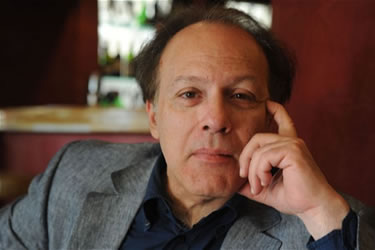|
Some writers have decided everything before they start, and they know what's going to happen to everyone and when, and how many chapters they're going to have, and so on. They have it all planned. I remember, for instance, that I was rather close to the end of A Man of Feeling, and I still hadn't decided if someone was going to die or not, and, if so, who. Of course, once a book is finished, it seems impossible that the story would be different from the way it finally was. But I remember very well not having decided what was going to happen, or to whom. And then you decide. This doesn't mean that the characters are, as some writers say, suddenly alive, somehow, and they rebel. This seems ludicrous to me. Some writers have this odd feeling, just because they decided to do something different than what they had originally planned—but you're still always deciding. But it's true that, for me, it's not just about finding out how the story goes or how it ends, but it's also that I usually understand the whole book only when I have finished, or only as I am finishing it.
I've said many times that some writers, those who know everything ahead of time, who have everything planned, work with a map. They know what they're going to find along the way of writing, and they can see that here we'll have a cliff, and here a desert will come, and then two rivers, and then a precipice—which doesn't mean that to cross a desert or jump off a cliff is not difficult, but they already know what they're going to find. Then there are some writers, the kind to which I belong, who don't have a map; the only thing we have is a compass. That means we more or less know where we're heading, where we want to go, but we don't know how, absolutely, and we find the river and the desert and cliff unexpectedly, and say, Oh, dear, a desert now, let's cross it.
More than one critic has pointed out that if you take my novels, and take the first paragraph, or sometimes even the first sentence, you usually have a plan of the whole book. Not a summary, of course, but in a way, they say, the book is contained, somehow, in the very first sentences. So perhaps when I begin, I somehow know toward where I'm heading, even if I can't quite see it yet.
|


